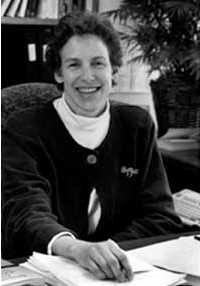After an editor at Oxford University Press read Unbending Gender, a book her own company published, she quit her job. In a way, it was the ultimate compliment for the author, Joan Williams ’80, a professor at American University’s Washington College of Law. The book focuses on, as its subtitle indicates, “why family and work conflict and what to do about it.”
But Williams doesn’t want people to change their jobs. She wants the workplace to change so that people will stay. That’s why she spearheaded the Project for Attorney Retention (PAR), whose final report details how law firms could offer their employees balanced hours to improve not only the lives of attorneys but the firms’ bottom lines as well.
“Defining your ‘ideal worker’ as someone who works 60 hours a week is not good business,” said Williams. “You are choosing whom to keep based on the schedule they can keep, not based on the quality of their work.”
For the project, which focused on Washington, D.C., firms, Williams interviewed attorneys who wanted to reduce their hours and partners who have instituted the most effective balanced-hours programs. Many attorneys noted the stigma surrounding current part-time policies: they reported that going part-time decreases the quality of their assignments, does not reduce hours significantly, and hurts their opportunities for advancement.
Most women cannot maintain the hours necessary to advance in a typical law firm because of child-care responsibilities, according to Williams. Thus, in an era when the majority of graduating law students (but only 15 percent of partners) are women, firms are losing valuable employees, which costs them talent and at least $200,000 for each instance of attrition.
Despite evidence that current practices are not working, Williams said, “One of the key challenges you face in trying to solve these work-family problems is that there is such a very broad, very deep sense that ‘this is just the way life is. How could you ever solve this problem?'” Williams is trying to solve it, urging firms to adopt part-time policies that are universally applicable, flexible, and encouraged by firm leadership. In the report, Williams also debunks objections to balanced-hours policies (the final PAR report may be accessed at www.pardc.org).
In addition to her work with PAR, Williams has fashioned a career examining the role of gender in our culture. The codirector of the Gender, Work and Family Project at American University’s law school, Williams began her legal career at a firm but quit after a lunch in which her lack of knowledge about football was exposed. She knew then, she writes in her book, that she would never make partner. Besides, she says, she is a born professor, who first taught local government and environmental law. “Then I had a baby, and I realized that gender was going to determine the course of my life, and it did. So I figured that . . . I might as well study it and understand it.”
And teach it as well–to her students, the legal community, and the public at large. Williams lectures widely and makes frequent media appearances. Gender, she says, is not about “the shape of your body.” It is about social roles.
“One of the other main things I feel I’m doing is returning to the vision of Ruth Bader Ginsburg ’56-’58, that gender is something that adversely affects men, as well as women,” said Williams. “Gender pressures on men . . . leave them often feeling that they have very little alternative but to have very unbalanced lives.”
The workplace does not offer people the choices they need, she says, but she is determined to help fix the problem. And Williams is more optimistic now than ever that gender roles will be reshaped to serve the lives and careers of both women and men.
